We are the relationship between the interpretations we make of ourselves. On an approach to hermeneutic philosophical anthropology [ENG-ESP]
12 comments
It has been a quite reflective day, besides the weather has propitiated a certain amount of time, since the abundant rains have secluded our bodies indoors, but, the reflective exercise that has a totally opposite response to that of the body, in rainy days had no limits in exploring reflective paths around what we are in front of ourselves. In the first instance came to my mind the idea that we are a spatio-temporal event, but, how to think of the human being in its complexity as a mere event, although it is partly true it is not the only thing.
Nor are we only thought, since we do not only respond to Descartes' rationalism. There is an important materialistic component. So any attempt to respond to what I am vis-à-vis myself cannot go in only one direction. We are not just body, much less just cogito.
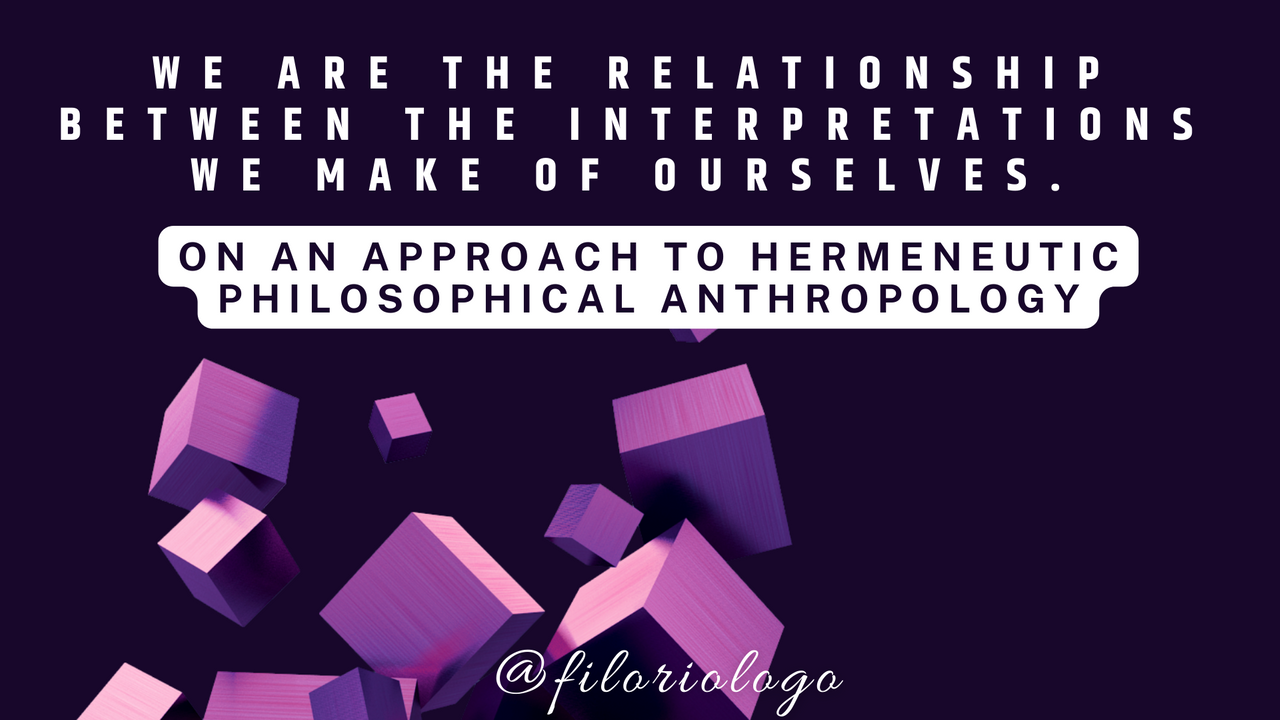
We are a sort of incarnated spirit, but couldn't we say the same about animals? I believe that in part yes, not even being able to have emotions is something that is to our being something clear and distinct. Animals feel too, or at least that's what it seems. I have also recently learned that there are biologists who are doing studies with plants to try to find out if they have something similar to what we humanly know as emotions. Although it is something that we cannot know with certainty for sure, we cannot leave emotions as a characteristic feature of what is human. That is to say, we are not distinguished by body, spirit or emotions.
If memory serves me correctly, Nietzsche, this philosopher with a prominent mustache, vehemently affirmed throughout his philosophical work that there is no absolute truth, but that what there is in the end are interpretations. So constructing a single definition of who we are becomes even more difficult. Up to this point it seems that there is nowhere to hold on to. Starting from the fact that there is no single way that can be said with truth, because there is no truth. Interpretations seem to be the best option.
Can we start in search of a definition based on interpretations? In fact, if we think about it, we find ourselves in a paradox, every interpretation that is thought to be a definition is nothing more than an interpretation on interpretations. We are now walking in circles, but this should not detract from the spirit of the search for the meaning of the human. Disciplines such as theology have developed a method called "hermeneutics" which is nothing more than that by means of various methods one can dialogue with the ancient texts and be able to approach a true interpretation.
It is a method that, as far as I am concerned, I dare to say that it is an active method, because it dialogues with the text to be studied, constantly asking questions that promote the linkage of the various arguments or ideas presented by the text to be studied.
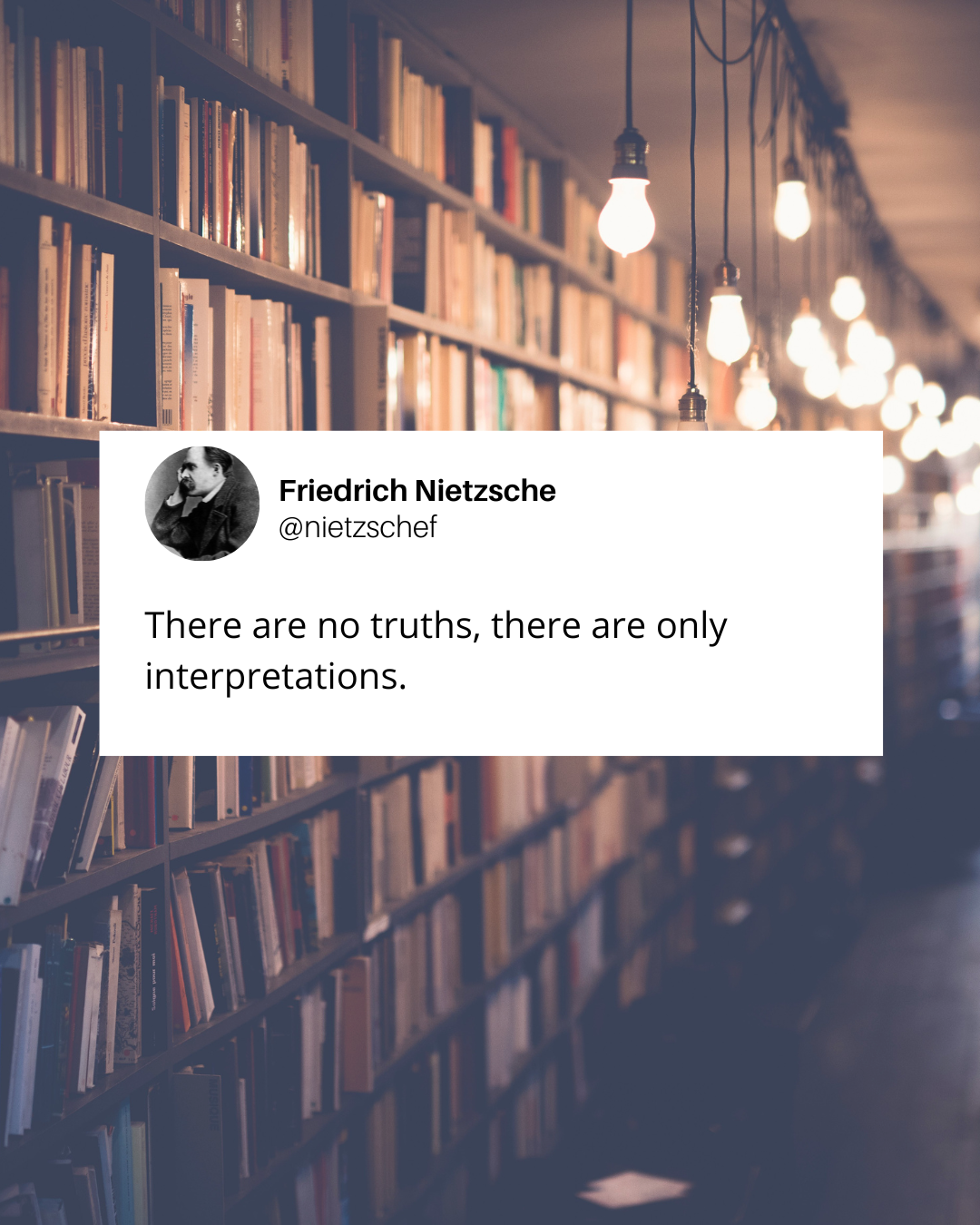
The hermeneutic method has demonstrated a certain efficacy at the moment of accessing accurate interpretations, to the point that the method has been transposed to the social sciences and to philosophy and has outlined a whole "hermeneutic philosophy". Philosophical anthropology is not exempt from this method, in fact, this text seeks to be an approximation to what a hermeneutic philosophical anthropology would say about the human. Contrary to scientific disciplines that are becoming more and more specific, reflections such as these do not seem to be very specific. Already the very name seems to be a linguistic muddle: "philosophical hermeneutic anthropology".
Doesn't it seem like a good idea to think of ourselves as a literary work?
I have no doubt that Derridá did an anthropological exercise when he coined the phrase: "There is nothing outside the text". Thinking of ourselves as a literary work is not something taken for granted, in fact, it seems to make all the sense in the world. A literary work usually has a message that wants to be communicated, it has a story, a character, a plot, and the life we all live is like that, let me explain:
The message comes to be our purpose of life, the character is each one of us, the plot is undoubtedly the daily life and our history. We are nothing more than a story. But what does this imply? It implies that we are subject to interpretation, both external and internal. For now let us not think about external interpretations, which from a stoic point of view matter little, since they are things that we cannot control, and this will become very clear when we explain the core of the internal interpretation, that is, the one that we make of ourselves.
Every human being has a context, or in the words of Ortega y Gasset, a circumstance. Circumstance that depends on the genetic load, and learning in connection with the environment. We are a link construct that tries to be able to tell itself. These two factors, delimit what can be perceived about oneself, so that the opinions we make of ourselves feed back my interpretation. If we can control this, maybe today I perceive myself in a way that in a while I will no longer feel that it is something that represents me.

And with this I was referring to the control factor, what we tell ourselves about ourselves is a dialogue in feedback, what is really important is to keep in mind, so that when we define ourselves we can say something like: "I feel this way for such and such a reason", to be aware that we are a story in constant reedition. In this way, we are responsible in a vital sense. With what has been said up to this point, it is necessary to know that the way in which I tell my story to myself, I can project it outside, with the purpose of being able to transmit to others what I am, but this has an effect that I find particularly interesting to think about and reflect upon. If we agree that we are a personal interpretation that we make to ourselves, what becomes everything else? The other people, the situations are interpretations that we also make, and in the same way we make them understanding that the interpretative parameters are what we have made of ourselves, for this reason, the world is not in a certain way, the world is as I am. In other words, and perhaps paraphrasing the Chilean philosopher Maturana, "the world is not as it is, but the world is as I am". To this I add, and I am as I have learned to interpret myself.
I ask you dear reader, when was the last time you consciously thought that what you say to yourself influences what you perceive of the world? I think Confucius had it quite clear, for he has bequeathed us a lapidary phrase:
"If you see a good person, try to imitate him, but if what you see is a bad person, check yourself."
Since I started to have contact with ancient wisdom I always think that they do not cease to have validity, and that shows that essentially speaking, we are still the same in many aspects. But to sum it up in one sentence, we are a mystery to be solved. I do not want to make this writing too long, I only intend to outline an anthropological approach since it is really just that, an approach, there are so many deep issues that deserve to be discussed, rethought and shaped in a more rigorous way. And with this I am not saying that it lacks interpretative validity, but that it is only the tip of something much bigger.
I hope it is of interest to you. Goodbye!

VERSIÓN EN ESPAÑOL
Somos la relación que hay entre las interpretaciones que hacemos de nosotros. Sobre una aproximación a la antropología filosófica hermenéutica
Ha sido un día bastante reflexivo, además que el clima ha propiciado cierto detenimiento ya que las abundantes lluvias han recluidos nuestros cuerpos dentro de casa, pero, el ejercicio reflexivo que tiene una respuesta totalmente contraría a la del cuerpo, en días lluviosos no tuvo límites en explorar senderos reflexivos en torno a lo que somos frente a nosotros mismos. En primera instancia vino a mi mente la idea de que somos un evento espacio-temporal, pero, cómo pensar al ser humano en su complejidad como un mero evento, aunque en parte es cierto no es lo único.
Tampoco somos solamente pensamiento, ya que no sólo respondemos al racionalismo de Descartes. Hay un componente materialista de peso importante. Así que todo intento de responder a lo que soy frente a mí mismo no puede ir en una sola dirección. No somos sólo cuerpo, ni mucho menos solo cogito.
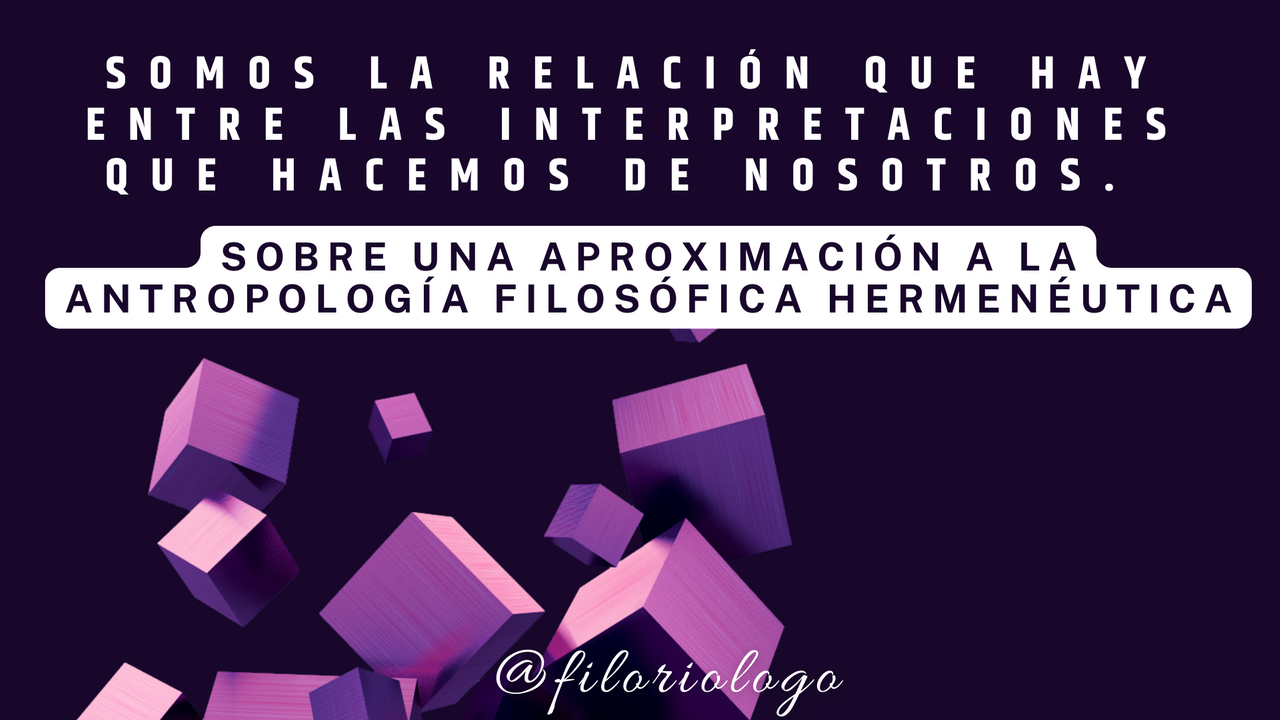
Somos una suerte de espíritu encarnado, pero, ¿acaso no podríamos decir lo mismo de los animales? Creo que en parte sí, ni siquiera el poder tener emociones es algo que sea a nuestro ser algo claro y distinto. Los animales también sienten, o por lo menos eso es lo que parece. También me he enterado recientemente que hay biólogos que están haciendo estudios con plantas para tratar de descubrir si tienen algo parecido a lo que humanamente conocemos como emociones. Aunque sea algo que no podamos saber con certeza a ciencia cierta, no podemos dejar como rasgo característico de lo humano a las emociones. Es decir, no nos distingue el cuerpo, el espíritu ni las emociones.
Si la memoria no me falla, Nietzche, este filósofo de prominente bigote afirmó con vehemencia durante toda su obra filosófica que no había una verdad absoluta, sino que lo que hay al fin y al cabo son interpretaciones. De modo que construir una sola definición de lo que somos, se dificulta aún más. Hasta este punto parece que no hay donde asirse. Partiendo que no hay una única vía que pueda decirse con verdad, porque verdad no hay. Las interpretaciones parecen ser la mejor opción.
¿Acaso podemos partir en búsqueda de una definición partiendo de interpretaciones? De hecho, si lo pensamos bien, nos encontramos en una paradoja, toda interpretación que se piense erigir como definición no es más que una interpretación sobre interpretaciones. Ahora andamos caminando en círculos, pero que esto no nos quite el ánimo de búsqueda de sentido de lo humano. Disciplinas como la teología ha desarrollado un método llamado “hermenéutica” que no es otra cosa que por medio de diversos métodos se puede dialogar con los textos antiguos y poder acercarse a una interpretación verdadera.
Es un método que a lo que a mi respecta, me atrevo a decir que es un método activo, porque se dialoga con el texto a estudiar, constantemente se le hacen preguntas que promuevan la ilación de los diversos argumentos o ideas que presenta el texto a estudiar.
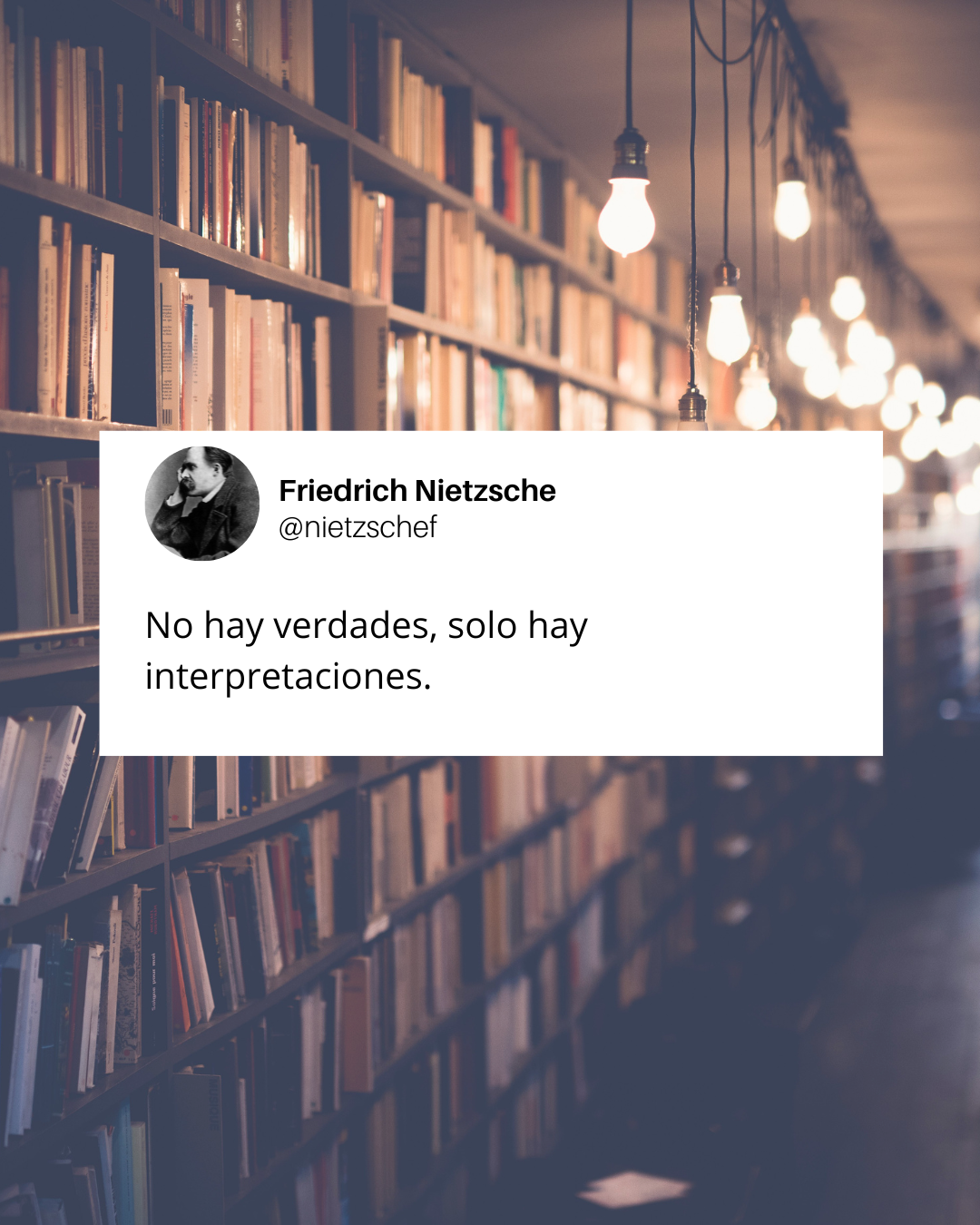
El método hermenéutico ha demostrado cierta eficacia al momento de acceder a interpretaciones acertadas, al punto que el método se traspolado a las ciencias sociales y a la filosofía ha esbozado toda una “filosofía hermenéutica”. La antropología filosófica no queda exenta de este método, de hecho, este texto lo que busca es ser una aproximación a lo que una antropología filosófica hermenéutica diría de lo humano. Al contrario de las disciplinas científicas que cada vez se hacen más específicas, reflexiones como estas parecen no ser muy específicas. Ya el puro nombre parece un enredo lingüístico: “Antropología filosófica hermenéutica”.
¿Acaso no parece buena idea pensarnos como una obra literaria?
No tengo duda alguna que Derridá hizo un ejercicio antropológico cuando acuñó la frase: “Nada hay fuera del texto”. Pensarnos como una obra literaria no es algo tomado por los pelos, de hecho, parece tener todo el sentido del mundo. Una obra literaria por lo general tiene un mensaje que quiere ser comunicado, posee una historia, un personaje, una trama, y la vida que todos vivimos es así, me explico:
El mensaje viene a ser nuestro propósito de vida, el personaje somos cada uno de nosotros, la trama es sin duda alguna la cotidianidad y nuestra historia. No somos otra cosa que un relato. Pero, ¿esto qué implica? implica que estamos sujetos a interpretación, tanto externa como interna. Por ahora no pensemos en las interpretaciones externas que de punto de vista estoico poco importan, ya que son cosas que no podemos controlar y esto quedará muy claro explicando el meollo de la interpretación interna, es decir, esa que nosotros hacemos de nosotros mismos.
Cada ser humano posee un contexto, o en palabras de Ortega y Gasset, una circunstancia. Circunstancia que depende de la carga genética, y el aprendizaje en conexión con el medio ambiente. Somos un constructo de vínculo que intenta poder decirse a sí mismo. Estos dos factores, delimitan lo que se puede percibir sobre sí mismo, de modo que las opiniones que hacemos de nosotros mismos retroalimentan mi interpretación. Esto si lo podemos controlar, quizá hoy me perciba de un modo que dentro de un tiempo ya no sienta que sea algo que me representa.

Y con esto me refería al factor control, lo que nos decimos a nosotros mismo sobre nosotros es un diálogo en retroalimentación, lo realmente importante es tener presente, de modo que cuando nos definamos podamos decir algo como: “me siento de tal modo por tal o cual razón”, hacer conciente que somos un relato en constante reedición. De este modo, somos responsables en sentido vital. Con lo dicho hasta este punto es preciso saber, que del modo en el cual relato mi historia a mi mismo, la puedo proyectar fuera, con el propósito de poder transmitir a otros eso que soy, pero esto tiene un efecto que me resulta particularmente interesante de pensar y reflexionar. Si estamos de acuerdo que somos una interpretación personal que nos hacemos a nosotros mismos, ¿Qué viene a ser todo lo demás? Las demás personas, las situaciones son interpretaciones que también hacemos, y del mismo modo las hacemos entendiendo que los parámetros interpretativos son lo que hemos hecho de nosotros, por tal razón, el mundo no es de un modo determinado, el mundo es como yo soy. En otras palabras y quizá parafraseando al filósofo chileno Maturana, “el mundo no es como es, sino que el mundo es como yo soy”. A esto añado, y yo soy como he aprendido a interpretarme.
Te pregunto estimado lector ¿Cuándo fue la última vez que pensaste de manera consciente que lo que te dices a ti mismo influye en lo que percibes del mundo? Pienso que Confucio lo tenía bastante claro, pues nos ha legado una frase lapidaria:
“Si ves a una persona buena, intenta imitarla, pero si lo que ves es a una mala persona, revisate.”
Desde que comencé a tener contacto con la sabiduría antigua siempre pienso que no dejan de tener vigencia, y eso demuestra que esencialmente hablando, seguimos siendo iguales en muchos aspectos. Pero para resumirlo en una sola frase, somos un misterio por resolver. No quiero hacer este escrito demasiado largo, solo pretendo esbozar una aproximación antropológica ya que en verdad es eso, una aproximación, hay tantos temas profundos que ameritan ser dialogados, repensados y plasmados de un modo más riguroso. Y con esto no digo que carezca de validez interpretativa, sino que es solo la punta de algo mucho más grande.
Espero que sea de tu interés. ¡Adiós!
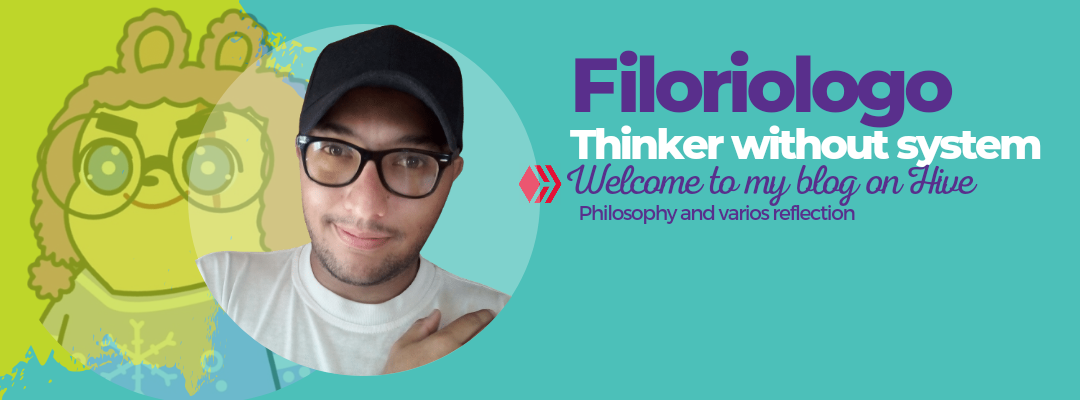
Otras|Other RRSS



Comments